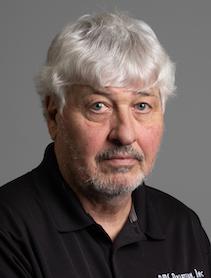
Bill Huth, Ph.D.
University of West Florida
Professor
Expertise:
Resource economicsResource economics
Bill Huth, a Distinguished University Professor at the University of West Florida, conducts marine-related economic research, including the continued development of artificial reefs and their place in fishery management. He is also interested in climate change, sea level rise and saltwater intrusion. To that end he is establishing a saltwater intrusion monitoring system (Hobo data recorders) in the Floridian aquifer. Huth, who holds a Ph.D. in Economics from the University of Arkansas, has been a UWF Scientific Diver. He is an artificial reef research specialist and author of professional publications on diving and marine resource valuation. Huth also is examining the lionfish invasion threatening the waters around Florida and elsewhere. He developed the first measures of consumer willingness to pay for lionfish control through the creation of a fishery. The economic experiment resulted in a paper (Huth, William L., Morgan, O. Ashton, and McEvoy, David, “Controlling an Invasive Species through Consumption: Private and Public Values of Eating Lionfish)” accepted for presentation at the 2016 European Association of Environmental and Resource Economists Conference in Zurich. Huth was one of four faculty members to win College of Business E.W. Hopkins Faculty Development Awards in 2016. Huth and colleagues often collaborate on research projects that examine both the economy and the environment. They include “Diving Demand for Large Ship Artificial Reefs,” (Marine Resource Economics); an examination of benefits and costs associated with cave diving (Resource and Energy Economics); and various aspects of consumer demand for Gulf of Mexico oysters and impacts of the 2010 BP Deepwater Horizon oil spill. Huth also was the lead investigator on the Florida Fish and Wildlife project, “Measuring Florida Artificial Reef Economic Benefits: A Synthesis.” The 2015 report documented both saltwater fishing and SCUBA diving economic value for Florida statewide and for each of its 67 counties. He was selected to attend the 2016 national workshop on artificial reefs that is being put on by NOAA and the Atlantic States Marine Fisheries Commission.
No Research/Citations
No Pitches / Articles Found
"I think it is extremely important to get young students involved in finding solutions."
-
Available for logged-in users onlyLogin HereorRegister